We started off with hiking along the Peck Lake Trail.
Assortment of vibrant colours (pretty much the theme of today) - green conifer trees, yellow/orange/red deciduous trees, and blue sky/lake.
We didn't see much wildlife today, except for some Green Frogs.
Different colours.
Looking at the two rows of stomata underneath hemlock needles.
Lycopodium with a strobilus on top. In the lycophytes, some leaves (a.k.a. sporophylls) are specialized and produce a sporangium at the top. The sporophylls of most lycophytes are grown in tight clusters and are known as the strobili..
Another lycopodium with strobili.
Back to admiring the colours.
Across Peck Lake.
Reflection.
We ate our lunch at the end of the trail and then headed to the next destination - Lookout Trail. However, once we arrived, we knew it was a popular destination because of the number of Chinese visitors everywhere!
A typical scene in popular tourist destinations in China (and even Taiwan), but now it's happening in Canada too. Having so many people around certainly takes away the pleasure of enjoying Algonquin peacefully without constantly deciding which route has the fewest people.
Looking up and focusing on nature will (temporarily) block out the people and noises.
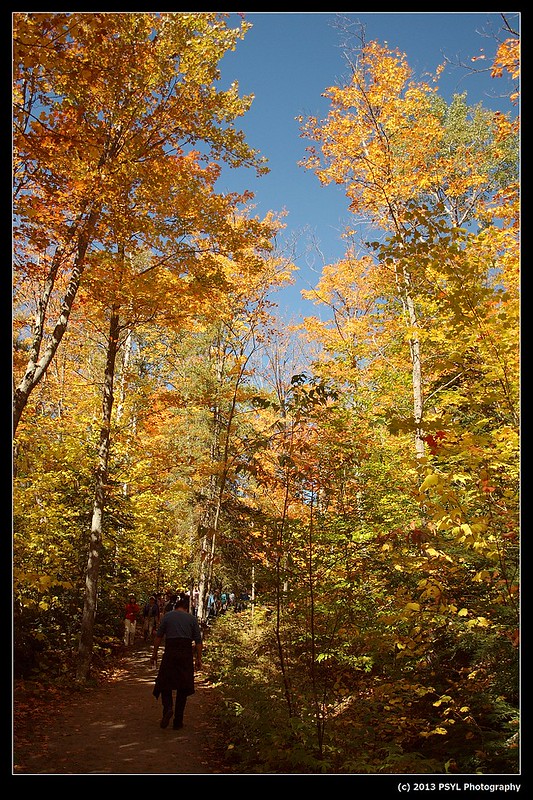
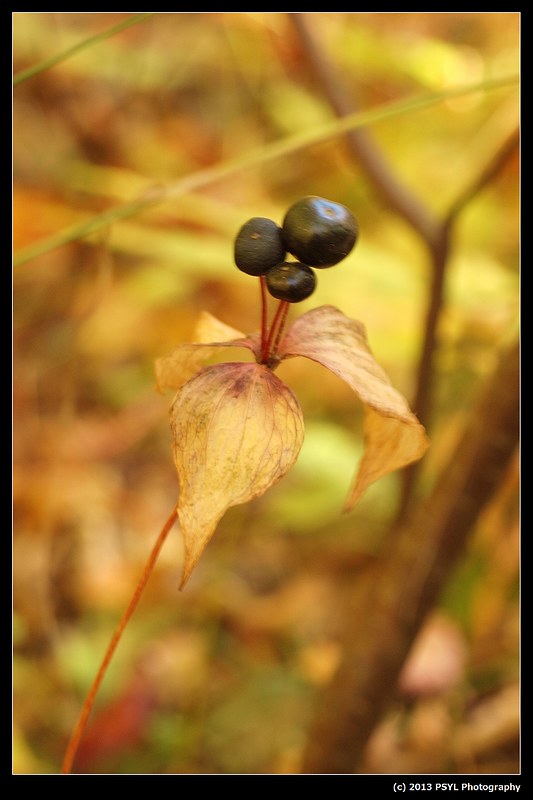
The fruits of the Indian cucumber-root (Medeola virginiana). So its flower is being pollinated, but the identity of the pollinator is still uncertain. Sorry for the blurry photo, but I had to snap the photo quickly because there were more people coming up the trail behind me.
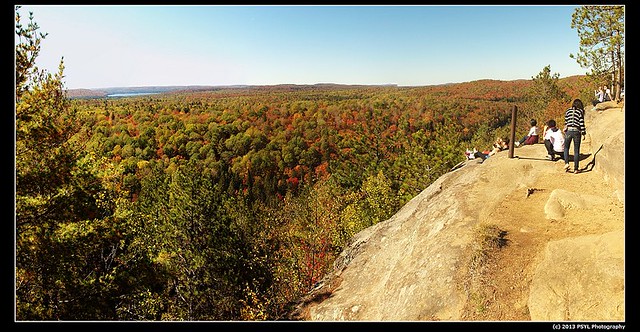
At the lookout.
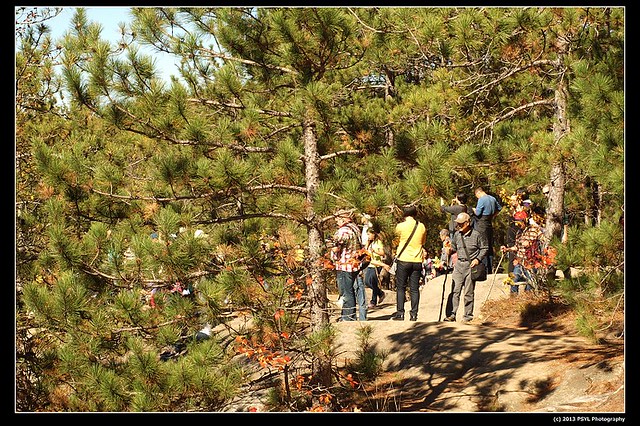
People and more people behind the trees.
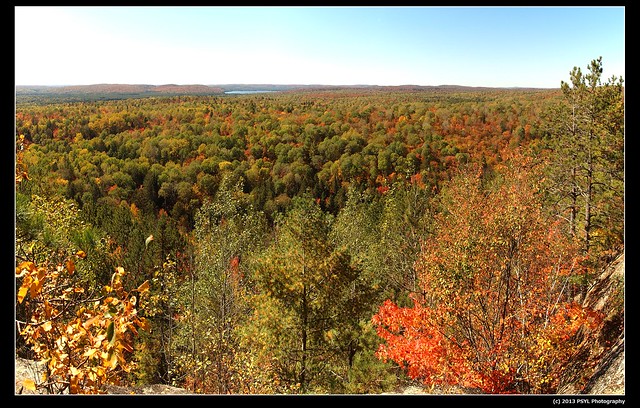
Such a beautiful day to be in Algonquin (although the bright sunlight made it difficult to get perfect exposure for the entire image).
Love the gradient of colours, almost like a painting.
On the way back down.
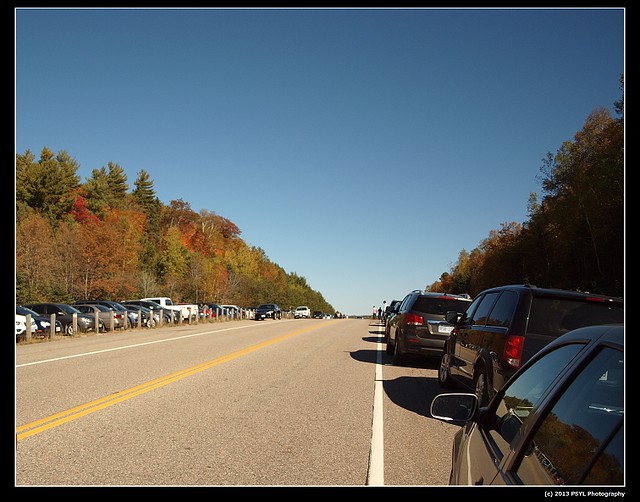
The parking lot was full with cars and large tour buses, so many people had to park their cars along the highway.
We then went to the Visitors' Center for a bathroom break and looked out at the back.
A sign describing the different kinds of trees found during this time of the year.
There are two kind of maples: Red maple (Acer rubrum) and Sugar maple (A. saccharum). Red maples are found in low wet areas or on rocky slopes, while Sugar maples form large, dense stands on well-drained hillsides. Then there is Tamarack (Larix laricina), the only deciduous conifer whose needles turn yellow from mid-October to early November. There are also White birch (Betula papyrifera) and Red oak (Quercus rubra), both of which peak around mid-October. There are two kind of aspens: Trembling aspen (Populus tremuloides) and Largetooth aspen (Populus grandidentata). The leaves of Trembling aspens turn to dull yellow colours in early to mid October, while Largetooth aspens turn bright yellow with orange tones around the same time.
Since the sun was directly in front of us, it was difficult to pick out the changing colours.
Before we left Algonquin, we drove a short distance along the road to Opeongo Lake where there were less traffic and people, and stopped to take more photos.
Shortly after leaving Whitney, I saw this scenery from the car and asked to stop and take some photos. The colours seemed to be more vibrant here and taking landscape photos across a water body is always ideal.
So glad I got the opportunity to visit Algonquin this week because I think the leaves will be gone by next week.
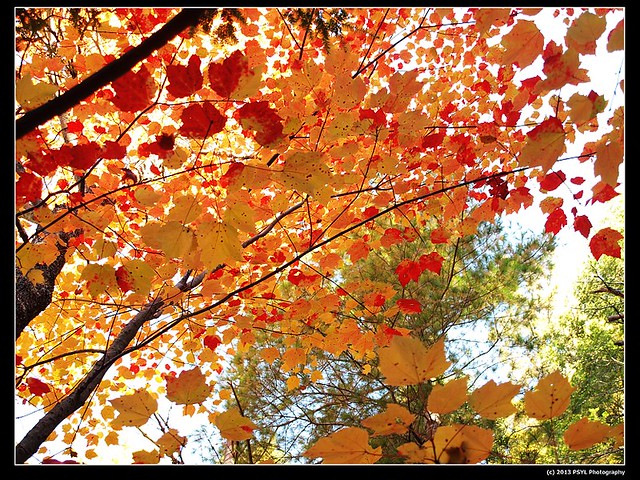
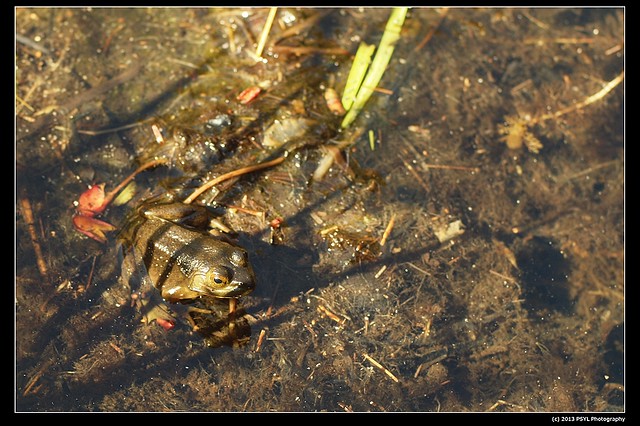
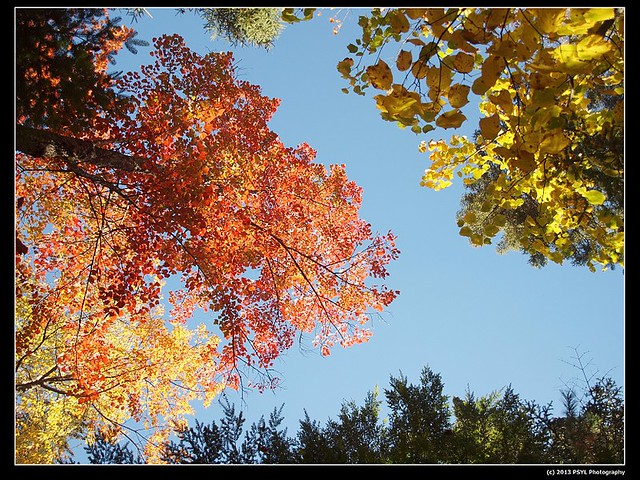
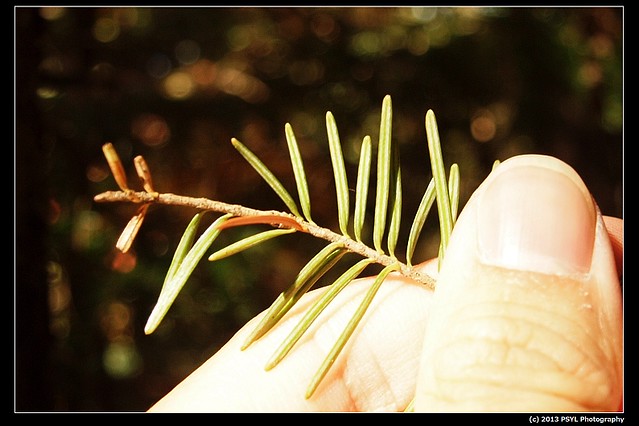
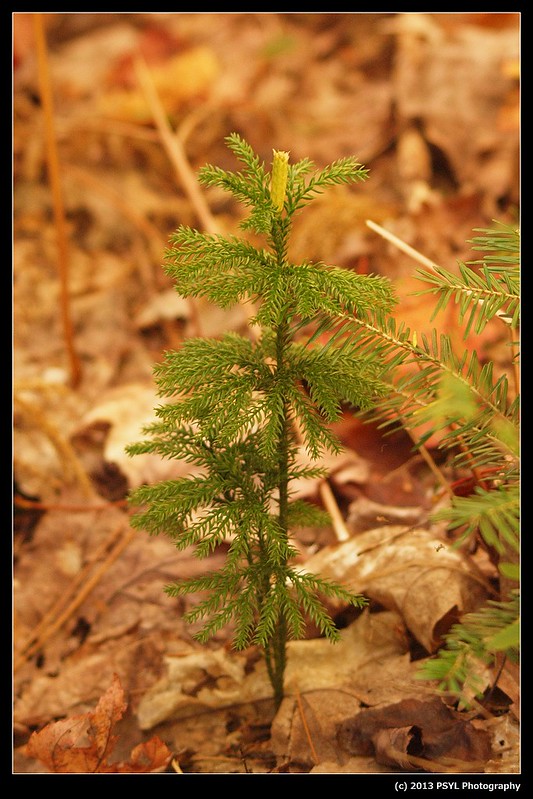
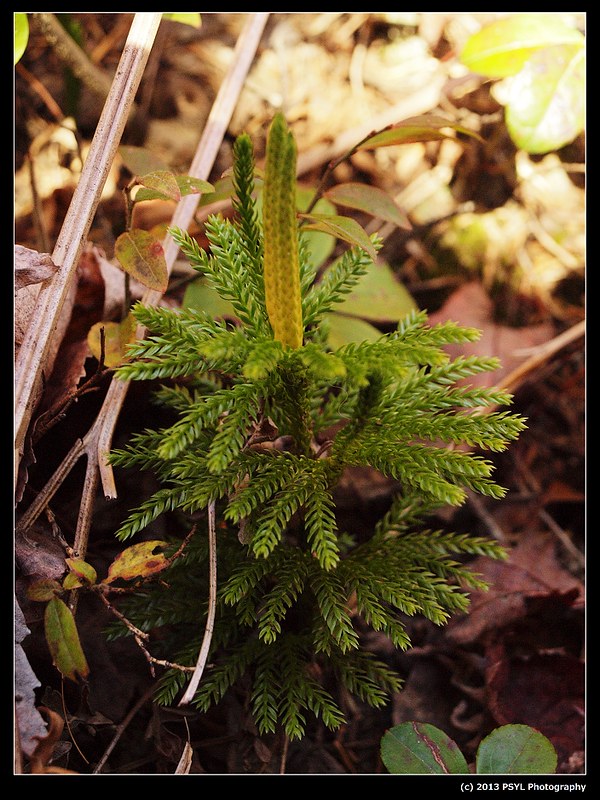
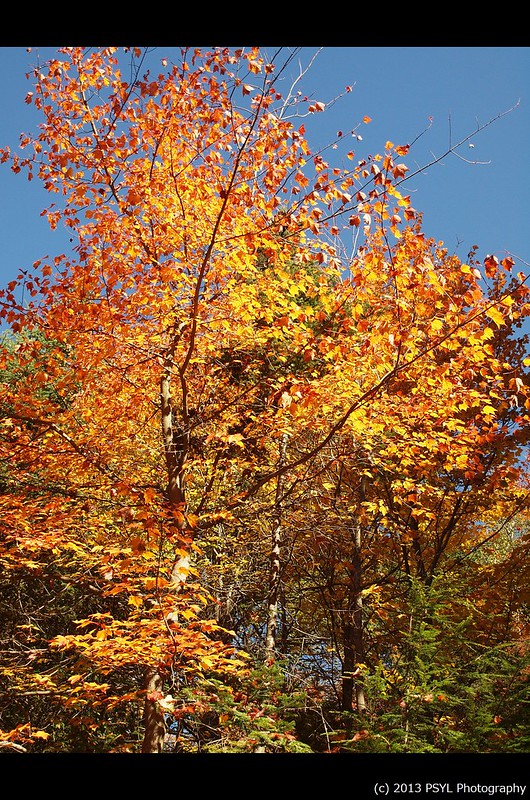
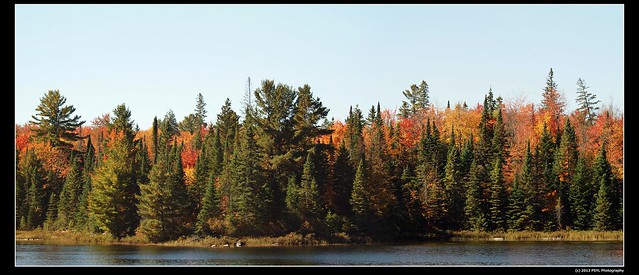
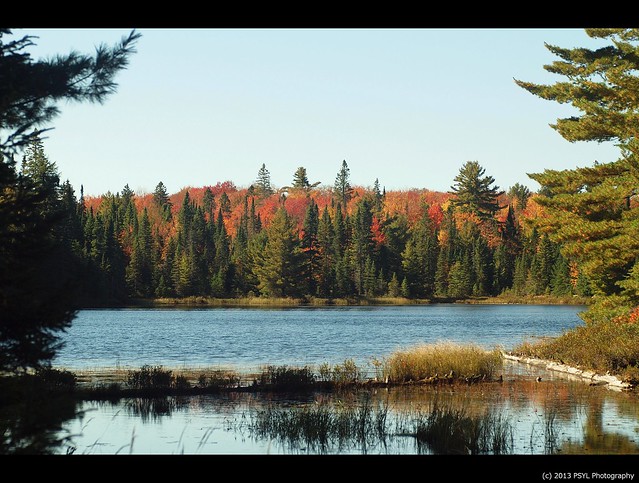
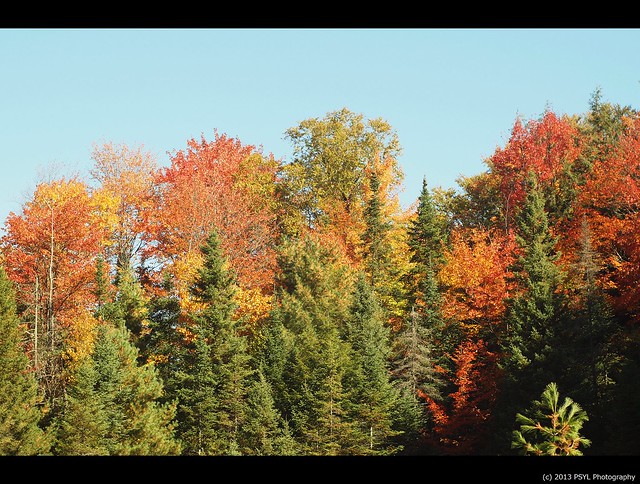
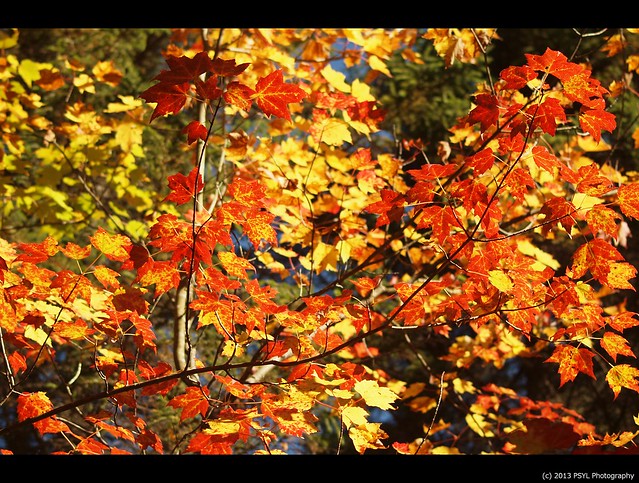
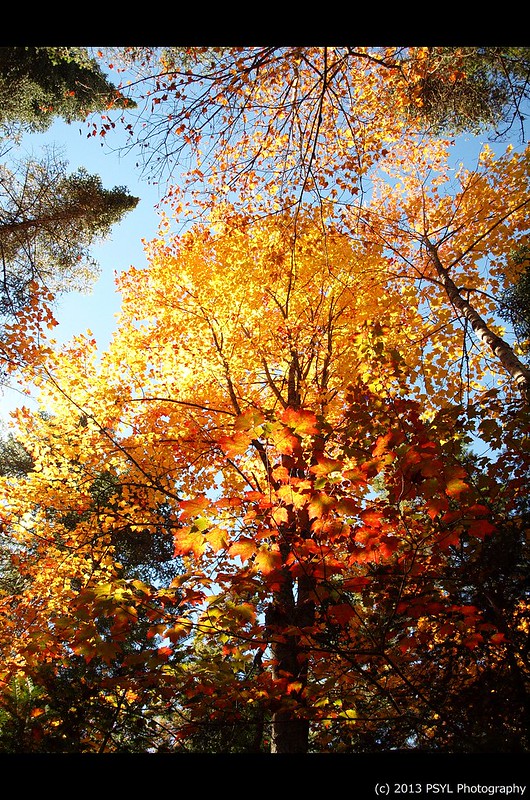
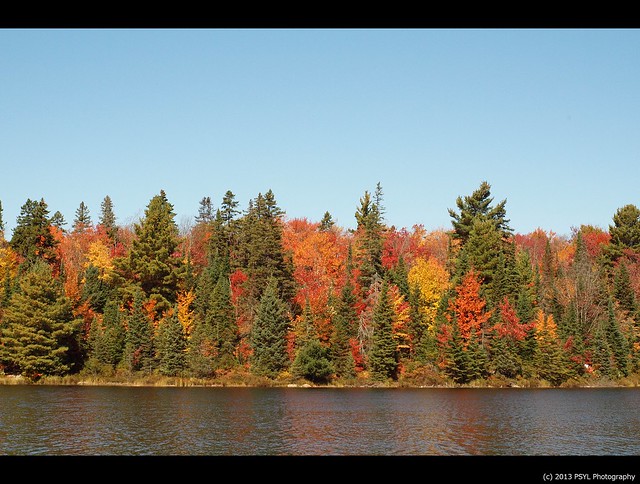
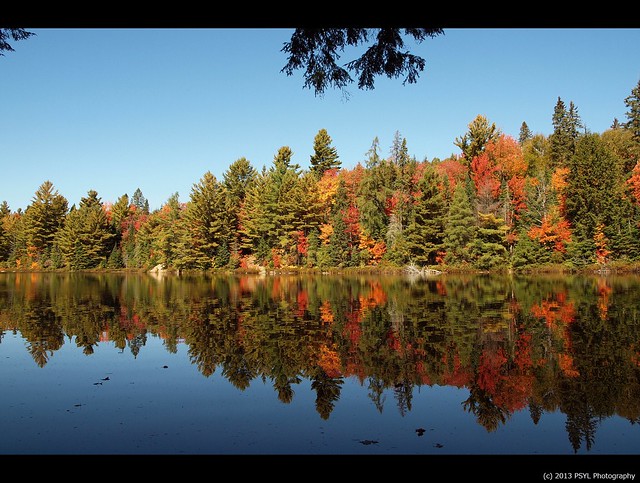
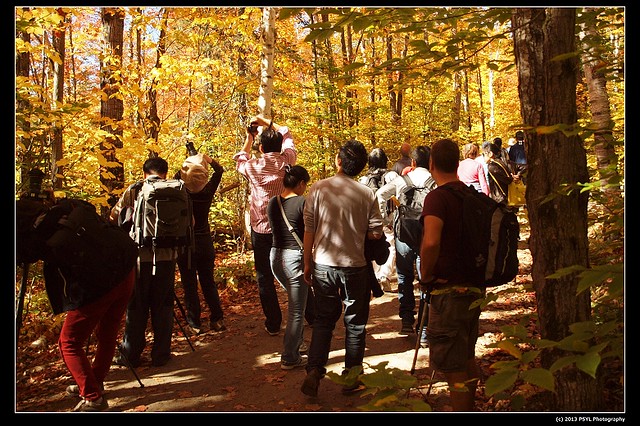
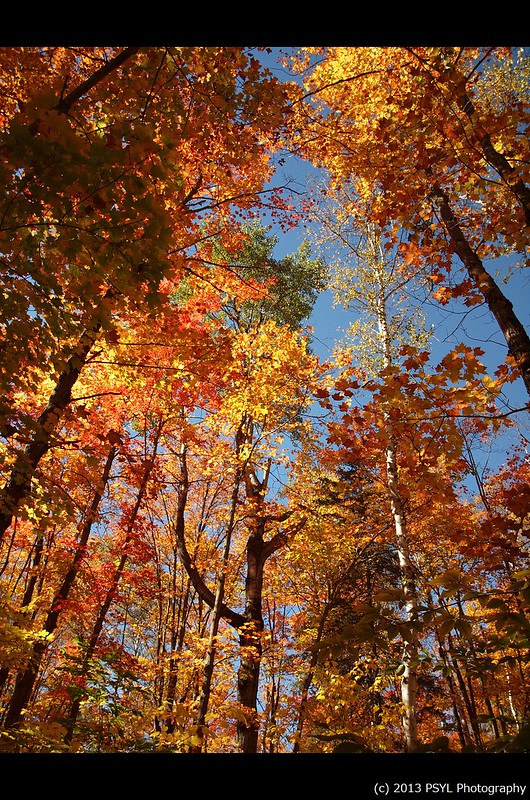

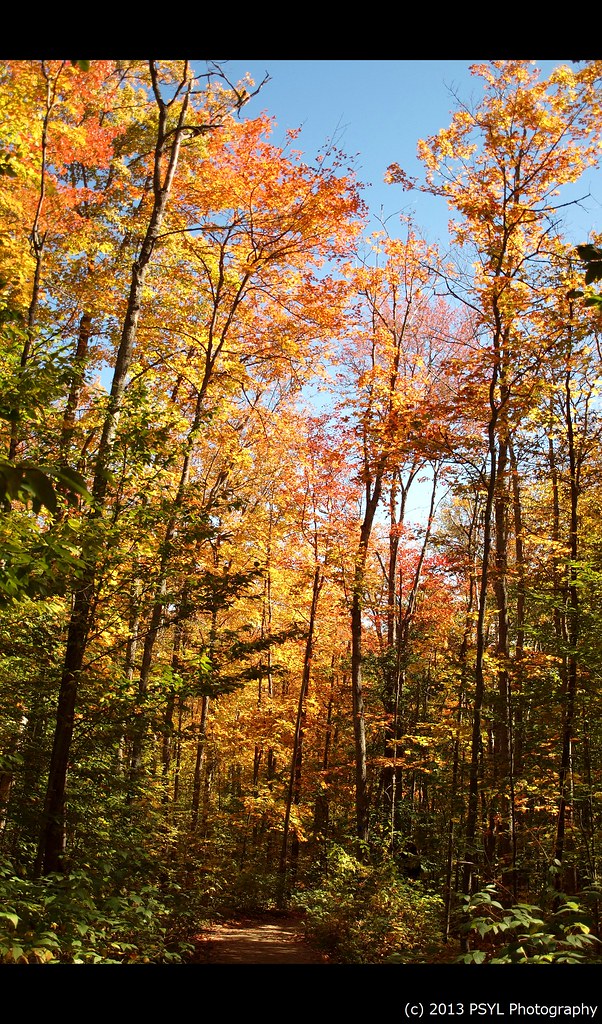
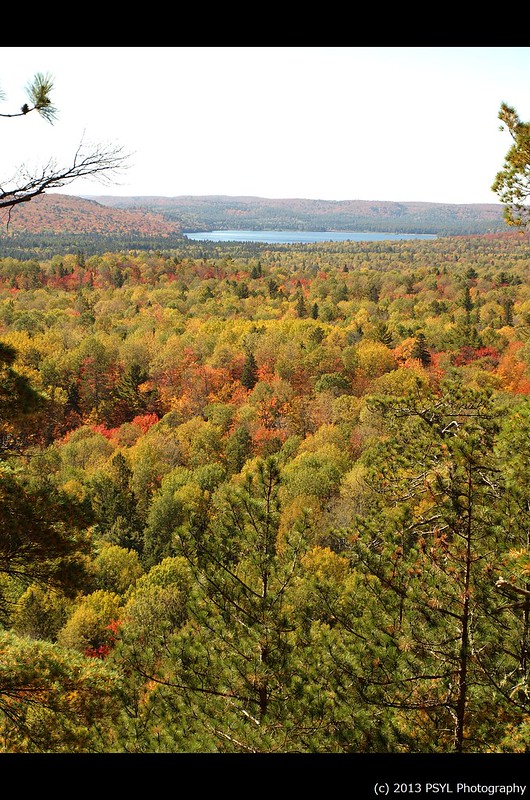
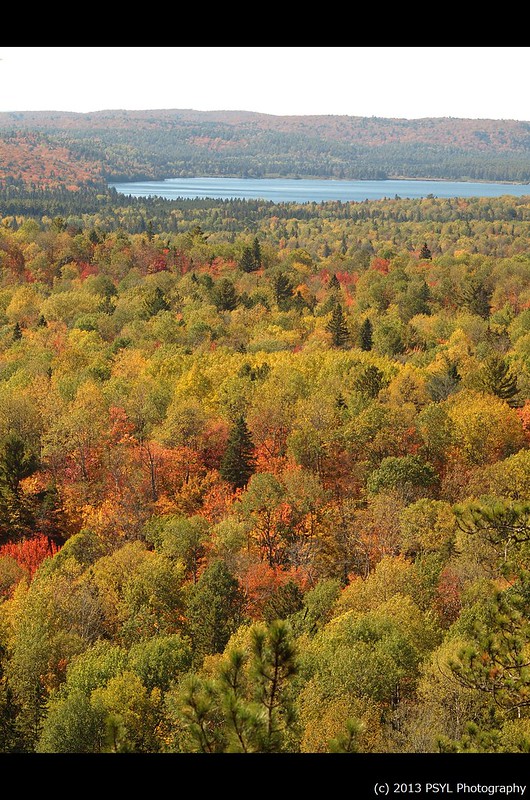
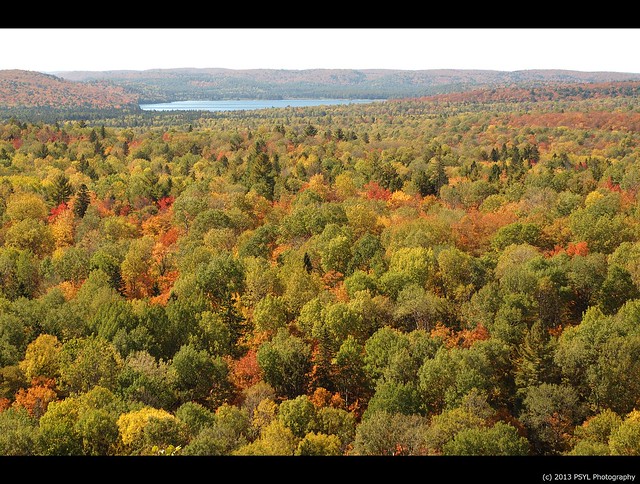
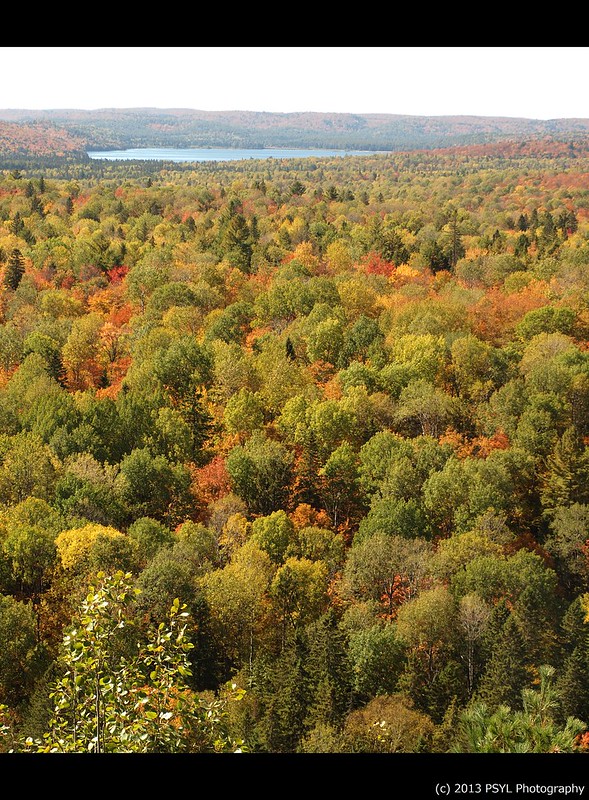

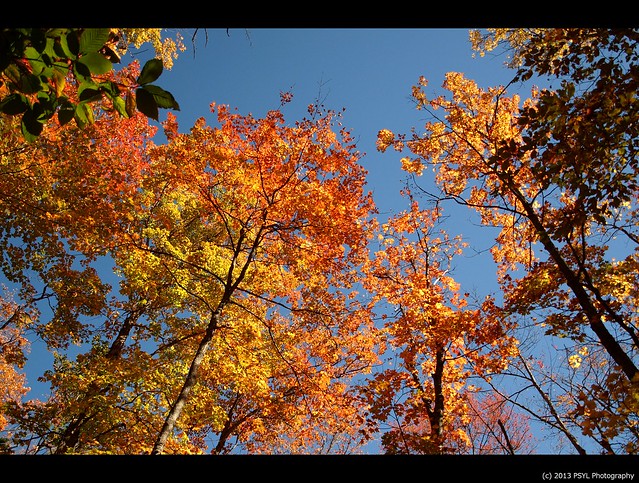
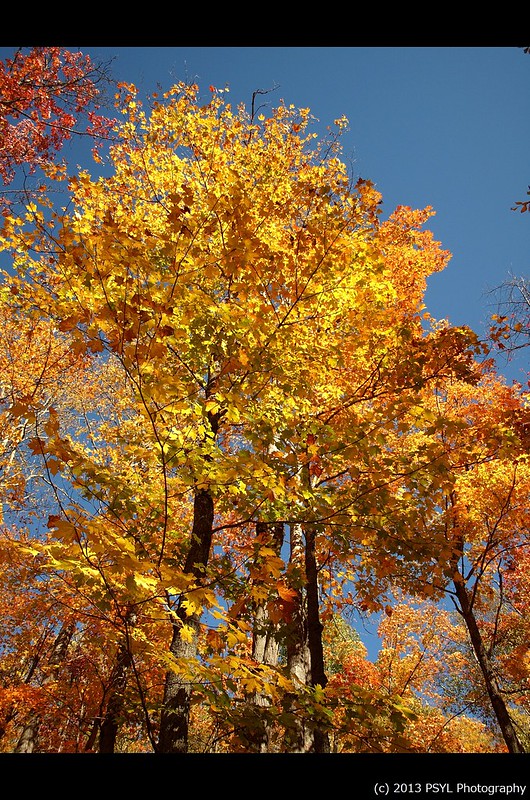
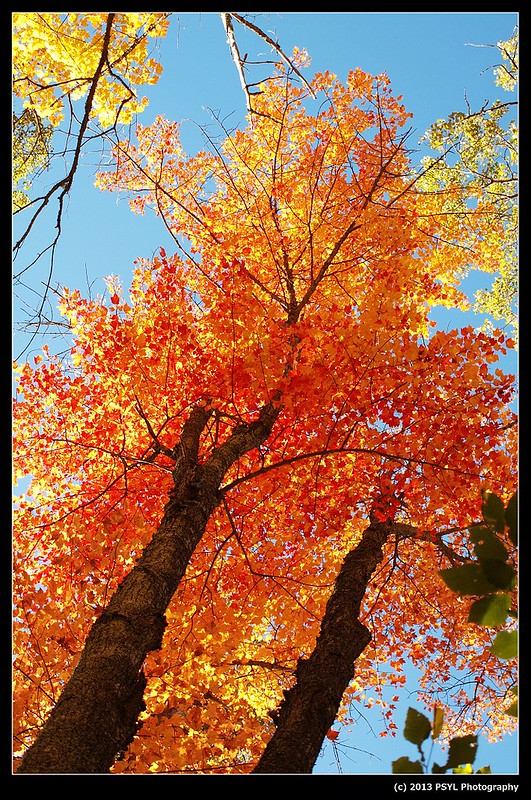
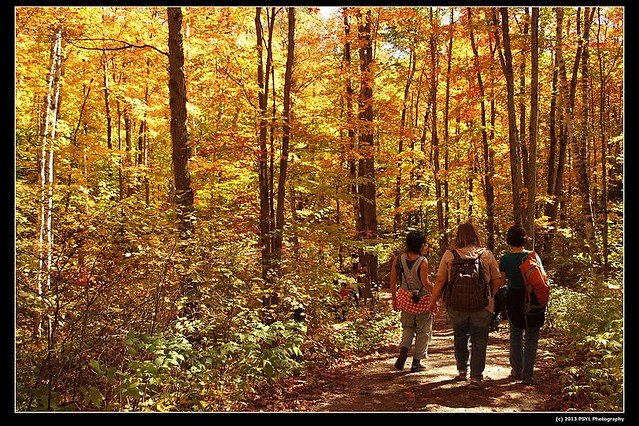
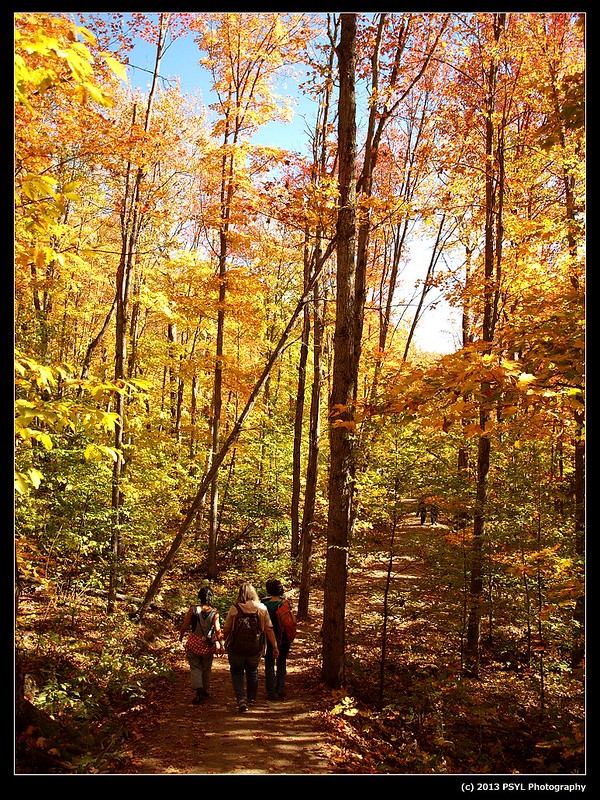
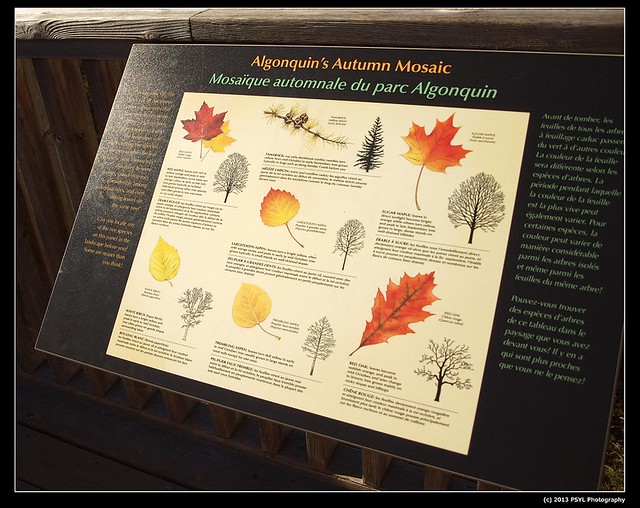

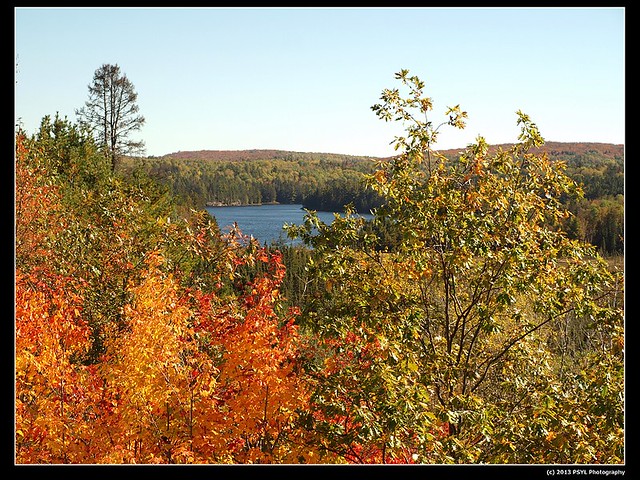
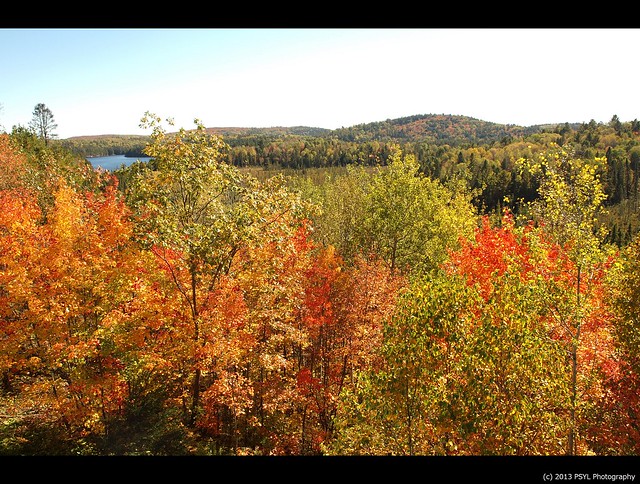
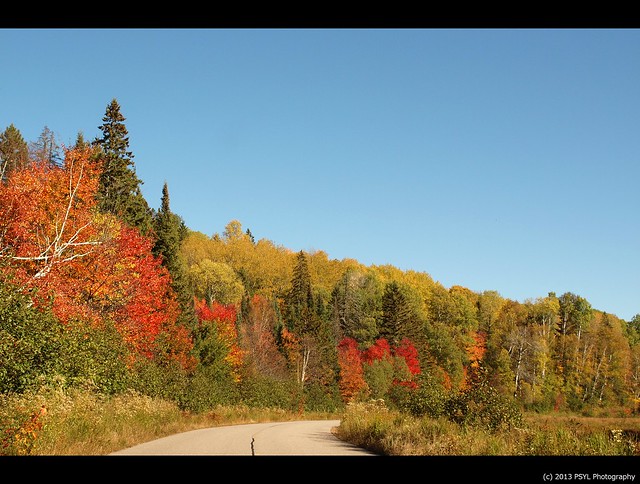
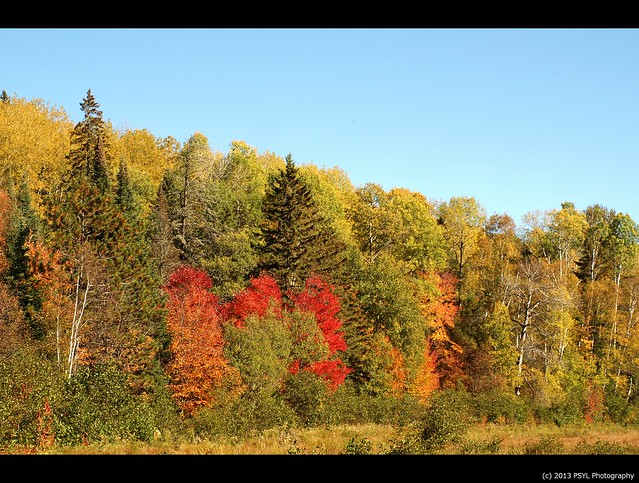
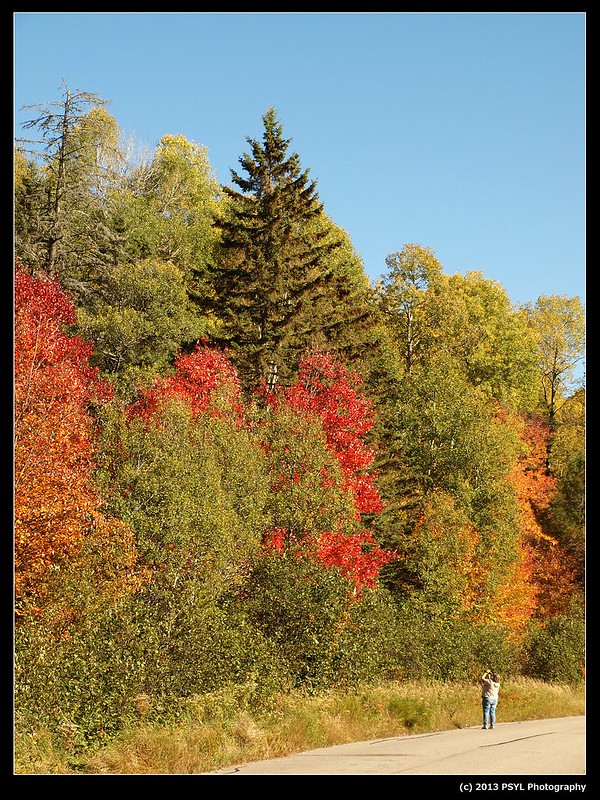
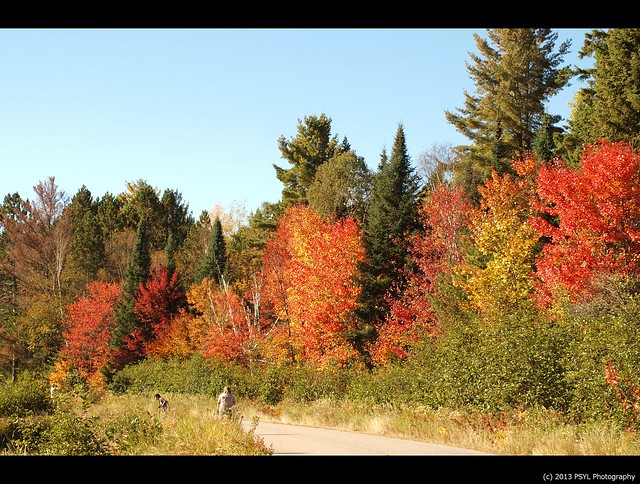
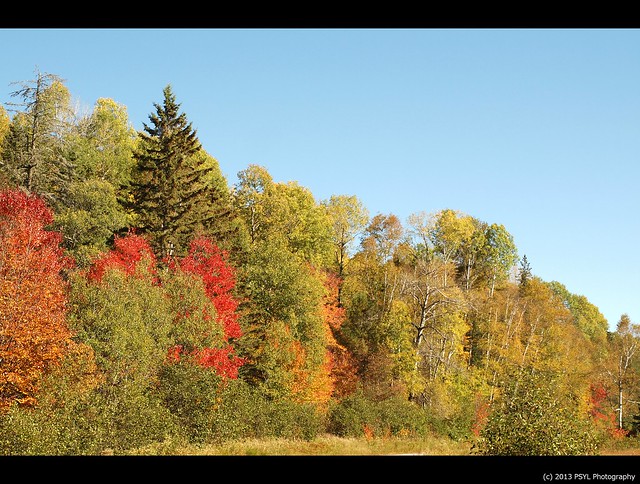
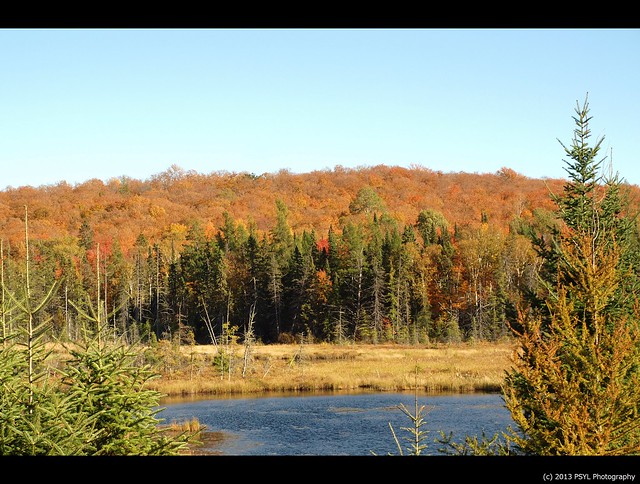
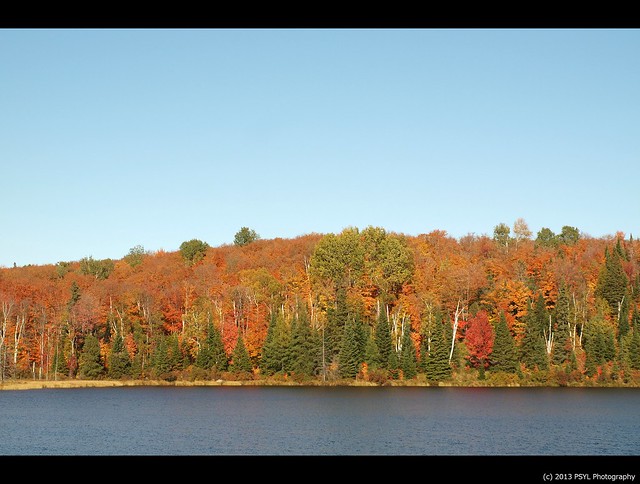
No comments:
Post a Comment